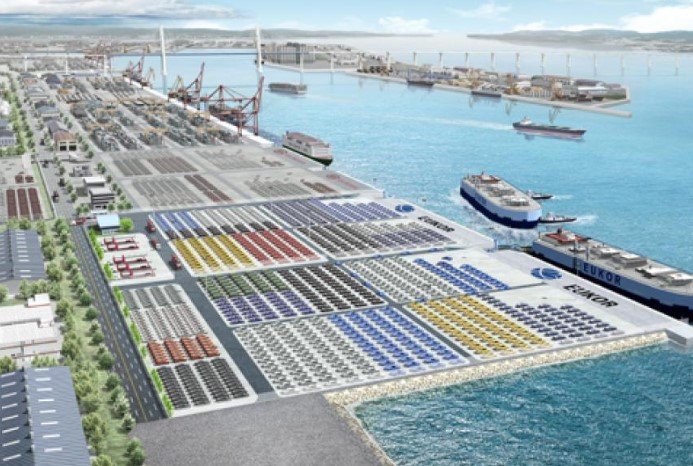The Georgian government has signed a significant agreement with the Belgian company Jan De Nul to advance the construction of the Anaklia Deep Sea Port. This strategic partnership aims to enhance Georgia’s maritime infrastructure and boost its competitiveness in the region. The agreement, signed at the Ministry of Economy and Sustainable Development, marks a crucial step in the development of the port, which is expected to play a pivotal role in the country’s economic growth and regional connectivity.
Strategic Importance of Anaklia Port
The Anaklia Deep Sea Port is envisioned as a transformative project for Georgia’s maritime capabilities. The port’s strategic location on the Black Sea coast positions it as a key hub for international trade and logistics. By facilitating the movement of goods between Europe and Asia, the port is expected to significantly enhance Georgia’s role in global trade networks. The deep-water port will also provide a critical link in the Middle Corridor, improving the efficiency and competitiveness of regional transportation routes.
The partnership with Jan De Nul, a leading company in maritime infrastructure, underscores the project’s importance. Jan De Nul’s expertise in dredging and marine engineering will be instrumental in the construction and maintenance of the port. The company’s involvement ensures that the project will meet international standards and contribute to the sustainable development of Georgia’s maritime sector.

Economic and Social Benefits
The construction of the Anaklia Deep Sea Port is anticipated to bring substantial economic and social benefits to Georgia. The project is expected to create numerous job opportunities, both during the construction phase and in the long term. The development of the port will stimulate local economies, particularly in the Anaklia region, by attracting investment and fostering business growth. Additionally, the port’s operation will generate revenue through port fees and related services, contributing to the national economy.
The enhanced connectivity provided by the port will also benefit various sectors, including agriculture, manufacturing, and tourism. By improving access to international markets, the port will enable Georgian businesses to expand their reach and increase exports. The project aligns with the government’s broader economic development goals, aiming to diversify the economy and reduce dependency on traditional industries.
Environmental and Sustainability Considerations
The Anaklia Deep Sea Port project incorporates several environmental and sustainability considerations. Jan De Nul’s commitment to sustainable practices ensures that the construction and operation of the port will minimize environmental impact. The company employs advanced technologies and methodologies to protect marine ecosystems and reduce carbon emissions. These efforts align with Georgia’s environmental policies and international commitments to sustainable development.
The project also includes measures to enhance coastal resilience and protect against climate change impacts. By integrating green infrastructure and adopting best practices in environmental management, the port aims to set a benchmark for sustainable maritime development in the region. The collaboration between the Georgian government and Jan De Nul reflects a shared commitment to balancing economic growth with environmental stewardship.
